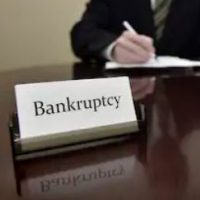Questions about the Chapter 13 Confirmation Hearing

In a Chapter 13 bankruptcy, a debtor will make monthly payments to creditors for three to five years. This is the longer of the two consumer bankruptcies (the other being Chapter 7), but Chapter 13 works in many situations.
The centerpiece of a Chapter 13 bankruptcy is the payment plan, which must be confirmed by a judge. Below, our bankruptcy attorney in Plantation answers key questions about the confirmation hearing.
What is the Purpose of the Confirmation Hearing?
A judge needs to review your repayment plan and sign off on it. Without the judge’s approval, you really don’t have a valid plan. The trustee will review the plan before the hearing and typically has signed off on it, but the judge’s approval is also necessary.
Do I Need to Attend a Confirmation Hearing?
Generally, no. Your Plantation bankruptcy attorney can represent you at the hearing. In the very off chance you need to be there, your attorney will discuss the reason why.
When is the Confirmation Hearing?
Usually, it is held a month or so after your Meeting of Creditors and two months after you filed for bankruptcy. At the Meeting of Creditors, you probably discussed your plan with the trustee who oversees the bankruptcy. Some creditors also might have showed up to review your plan.
Are Most Confirmation Hearings Straightforward?
Yes. If the trustee or creditor had concerns about your plan, they should have raised them before the confirmation hearing to give you a chance to address them. Sometimes this happens. We can usually negotiate with the creditor or the trustee to solve any disagreements about the plan before the hearing. If all problems are resolved, then the judge rarely raises any objections on his own. The judge will review the plan and sign off on it.
What if Disagreements Cannot Be Resolved?
This sometimes happens in a Chapter 13 case. Either the trustee or a creditor disagrees with something in the plan. Some examples include:
- The trustee does not agree with your budget. For example, he or she might think that an expense you are claiming is too large or whether certain funds you receive qualify as income.
- A creditor might think collateral securing a loan is more valuable than you do.
Typically, these concerns are raised weeks or months before the confirmation hearing so that all parties are on the same page when they present a plan to the judge. However, a creditor could raise an objection at the hearing itself. The judge might adjourn the hearing and ask the parties to resolve any dispute before coming back.
When the parties still cannot reach an agreement, they might need to start an adversary proceeding. Ultimately, the judge will need to decide the dispute after hearing argument from each side. Adversary proceedings are rare, though not unheard of.
Is Chapter 13 Bankruptcy Right for You?
The Plantation bankruptcy lawyers at Nowack & Olson, PLLC have a combined 40 years of experience shepherding clients through the bankruptcy process. To discuss whether this is a good option for you, call us today to schedule a free consultation.
